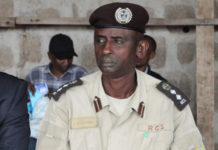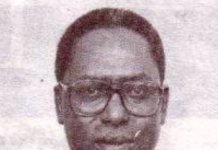A court in Paris has sentenced Pascal Simbikangwa to 25 years in prison on genocide charges. The trial was the first in France pertaining to Rwanda’s 1994 genocide, and it may not be the last.
Former Rwandan intelligence agent Pascal Simbikangwa was convicted of genocide and complicity in crimes against humanity on Friday for his role in Rwanda’s 1994 genocide.
Shimbikangwa, a 54-year-old confined to a wheelchair since a 1986 car crash, again denied the charges against him in court on Friday, saying that the “authenticity of my innocence needs no more proof.”
“In a few moments you will be alone with your conscience, you are called upon to decide my fate,” Shimbikangwa told the jury. “To all Tutsi victims, I am thinking of them. Sorry for the weaknesses of my condition that did not allow me to help you like I would have wanted to.”
The defense had argued for acquittal, claiming that the trial was politically motivated, while Simbikangwa described himself as a “mere agent” in court. The prosecution, however, portrayed him as a former soldier who rose to become No. 3 in Rwanda’s intelligence services. Witnesses said Simbikangwa cached weapons at his home, and also gave orders and directions to Hutu militia manning roadblocks and attacking civilians. Prosecutor Bruno Sturlese had asked the jury to hand down a life sentence.
Simbikangwa was arrested in 2008 on the French island of Mayotte in the Indian Ocean. Unusually, his landmark trial was filmed, with footage set to be made publicly available after the verdict late on Friday.
Possible precedent
Despite similar cases in other European countries like Belgium, Sweden and Germany, France had never before tried a Rwandan on genocide charges. A special prosecuting unit was created for the purpose two years ago – amid an improvement of ties with the current Tutsi government in Rwanda – and is currently investigating around two dozen potential cases.
The French government of Francois Mitterand has long been accused of failing to rein in the Hutu-led forces during the genocide. Critics also claim that some Rwandan perpetrators were able to flee to France and live unpunished; a small group tried to demonstrate outside the court on Friday, but officials said they were ushered away for not having the proper permit.
The defense had argued that their client was disadvantaged by the symbolism of the case, which began in Febuary, saying it was inappropriate to hold the trial so close to next month’s 20th anniversary of the bloodshed’s start.































































